Academic Conferences for School and Teacher Leaders
Academic Conferences for School and Teacher Leaders
Eli R. Johnson and Arthur L. Costa
Rowman & Littlefield
Lanham Boulder New York Toronto Plymouth, UK
Published by Rowman & Littlefield
4501 Forbes Boulevard, Suite 200, Lanham, Maryland 20706
www.rowman.com
10 Thornbury Road, Plymouth PL6 7PP, United Kingdom
Copyright 2014 by Rowman & Littlefield
All rights reserved . No part of this book may be reproduced in any form or by any electronic or mechanical means, including information storage and retrieval systems, without written permission from the publisher, except by a reviewer who may quote passages in a review.
British Library Cataloguing in Publication Information Available
Library of Congress Cataloging-in-Publication Data
Johnson, Eli R.
Academic conferences for school and teacher leaders / Eli Johnson and Arthur L. Costa.
pages cm
Includes bibliographical references and index.
ISBN 978-1-4422-3339-3 (cloth : alk. paper) ISBN 978-1-4422-3340-9 (pbk. : alk. paper) ISBN 978-1-4422-3341-6 (electronic) 1. School administratorsSocieties, etc.Congresses. 2. School administratorsProfessional relationships. 3. Educational leadershipCongresses. I. Costa, Arthur L. II. Title.
LB1777.5.J65 2014
371.2'011dc23
2014003901
 The paper used in this publication meets the minimum requirements of American National Standard for Information SciencesPermanence of Paper for Printed Library Materials, ANSI/NISO Z39.48-1992.
The paper used in this publication meets the minimum requirements of American National Standard for Information SciencesPermanence of Paper for Printed Library Materials, ANSI/NISO Z39.48-1992.
Printed in the United States of America
Preface
We face exciting times in education. Although the challenges our students confront each day seem to increase, our knowledge and understanding of what works in schools is also increasing. Over the years, schools have added common core standards, comprehensive curriculum, instructional strategies, academic assessments, and educational collaboration to meet the needs of all our students. Collaborating as educational professionals has enhanced our educational results. As teacher leaders, school leaders, and district leaders we can improve academic outcomes through innovations in educational collaboration. As we work together, we can create results through a growing educational movement called academic conferences.
Like professional learning communities, academic conferences increase collaboration and support collegial dialogue. Academic conferencing among teachers, principals, and district administrators provides us a forum as professionals to consider our educational practices and plan for future results. Conferencing provides opportunities to explore new outcomes for the school organization. In our roles as instructional leaders (whether as a teacher, site administrator, or district administrator), we rarely seem to take the time to conference together and address the most important academic challenges we face. Academic conferral sessions are designed to help educators identify how teaching tasks and academic outcomes in the classroom connect to the long-term strategic plans, learning goals, and academic purposes of the district. This book is about encouraging and enhancing these conferral conversations. A quick story illustrates how academic conferences can influence some of our common challenges.
We had just started new roles within a struggling school districtEli as chief academic officer in the central office and Art as leadership consultant for the district. We helped implement academic conferences within the schools and conducted academic conferences at the district level. When we started conducting academic conferences, our academic initiatives really took hold and took off. When teachers conferred with school leadership teams and principals conferred with district leadership teams, everyones ideas and efforts were brought together to produce consistent results. As the year progressed, the teachers and principals embraced the opportunity to discuss their important ideas openly and the chance to work together. As we look back, we have often reflected on the impact of academic conferences and marveled at how these collegial conversations made such a difference .
Conferencing allows teachers, principals, and district administrators to take the time to look at instructional practice in depth. When done effectively, academic conferences can transform our schools and help school and teacher leaders achieve excellence in every classroom for every student. Lets look at what we will be discussing and discovering in the upcoming chapters:
- Chapter 1: Academic Conferences for Teachers and School Leaders
This chapter highlights the importance of academic conferences in focusing teacher and school leaders on student learning and instructional leadership. We will look at an overview of both classroom-teacher conferences and school-administrator conferences and discover how they help create vertical alignment within our schools and school districts.
- Chapter 2: Academic Conferences for Classroom Teachers
This chapter provides an overview of the role academic conferences play in transforming our schools. The roles of facilitator, supporters, and chief contributor are outlined. The who, what, where, when, and why of these academic conferences are discussed. We look at an overview of academic conferences and how they can improve the academic results in our classrooms.
- Chapter 3: Supporting Classroom-Teacher Academic Conferences
This chapter identifies the conferral feedback processes that create effective school-wide conferences. The five conferral processes of reflecting on instruction, analyzing student data, planning and setting goals, creating solutions, and making commitments will be emphasized. An academic conference template is provided as a road map for conducting effective conferences.
- Chapter 4: How to Conduct Classroom-Teacher Academic Conferences
We will look at the ins and outs of conducting classroom-teacher conferences. This chapter discusses how to engage in classroom-teacher academic conferences so that personal trust develops and academic performance improves. Specific examples of dialogue and how to do it insights are provided.
- Chapter 5: Leading School-Administrator Academic Conferences
Chapter five highlights the roles for school-administrator conferences. We will look at developing a common vision through academic conferences. The specific skills for chief contributors (principals and their administration team), facilitators (assistant superintendent or other district administrator), supporters (directors of instruction, special education, English language learners [ELLs], etc.) are addressed. We will note the need for an organizational change in education by conducting school-administrator conferences.
- Chapter 6: Key Principles of School-Administrator Academic Conferences
We will identify the key principles for creating learning organizations through effective school-administrator conferences. The conferral process of reflecting, analyzing data, planning, creating solutions, and making commitments for school administrators is addressed.
- Chapter 7: How to Conduct School-Administrator Academic Conferences
This chapter identifies the how-tos for implementing effective school-administrator conferences. Creating a shared vision through conferencing is outlined. Specific examples of administrative conversations and how to do it insights are provided.
- Chapter 8: Leading and Sustaining Academic Conferences
This chapter addresses the need for creating self-directed learning, ownership, and interdependent trust between classroom and school leaders. Implementation, capacity building, and sustainability for academic conferences are covered. We will outline methods for school-wide and district-wide certification for staff members. We will review the key principles that make academic conferences innovative and successful.
Next page
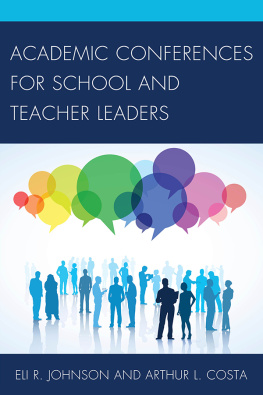

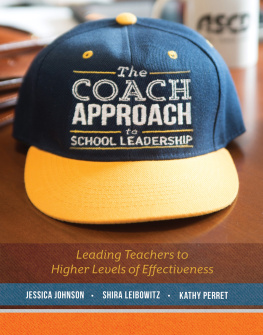

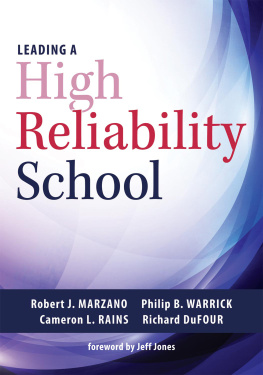
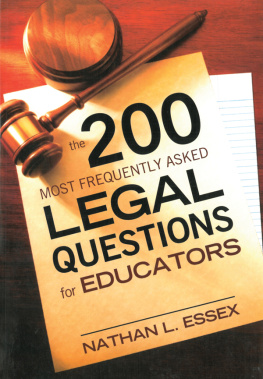
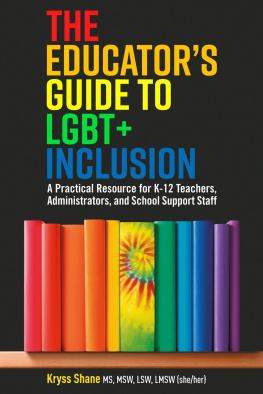
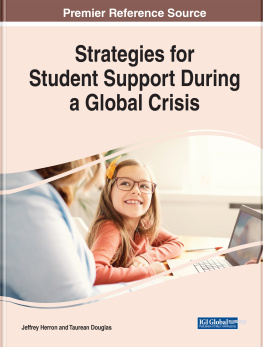
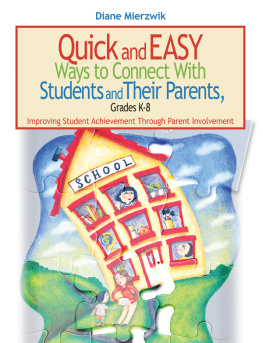
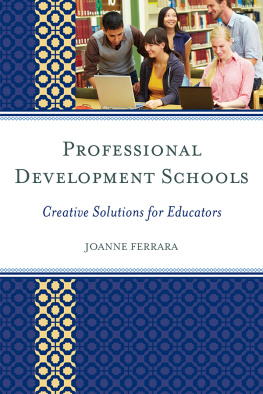
 The paper used in this publication meets the minimum requirements of American National Standard for Information SciencesPermanence of Paper for Printed Library Materials, ANSI/NISO Z39.48-1992.
The paper used in this publication meets the minimum requirements of American National Standard for Information SciencesPermanence of Paper for Printed Library Materials, ANSI/NISO Z39.48-1992.